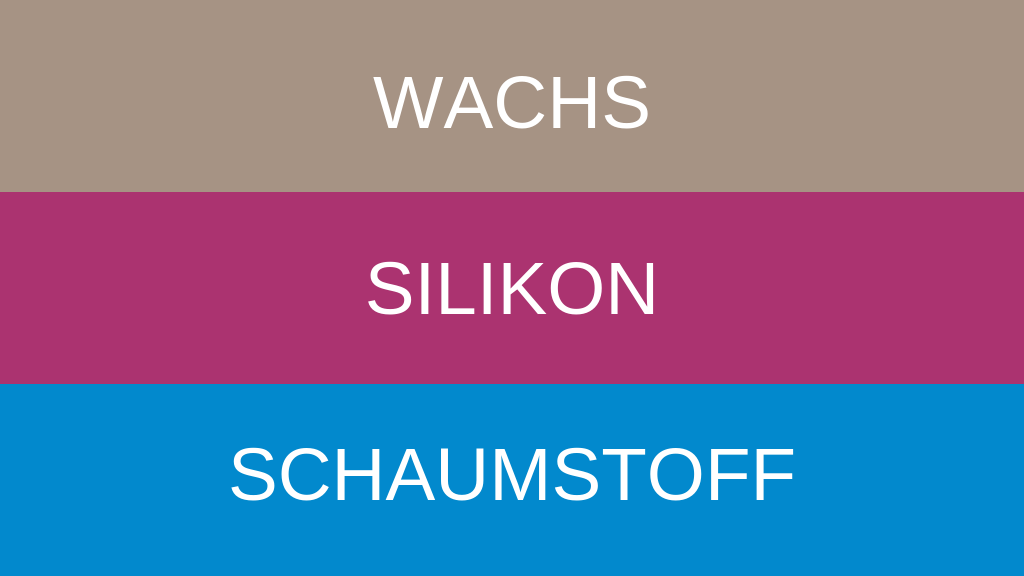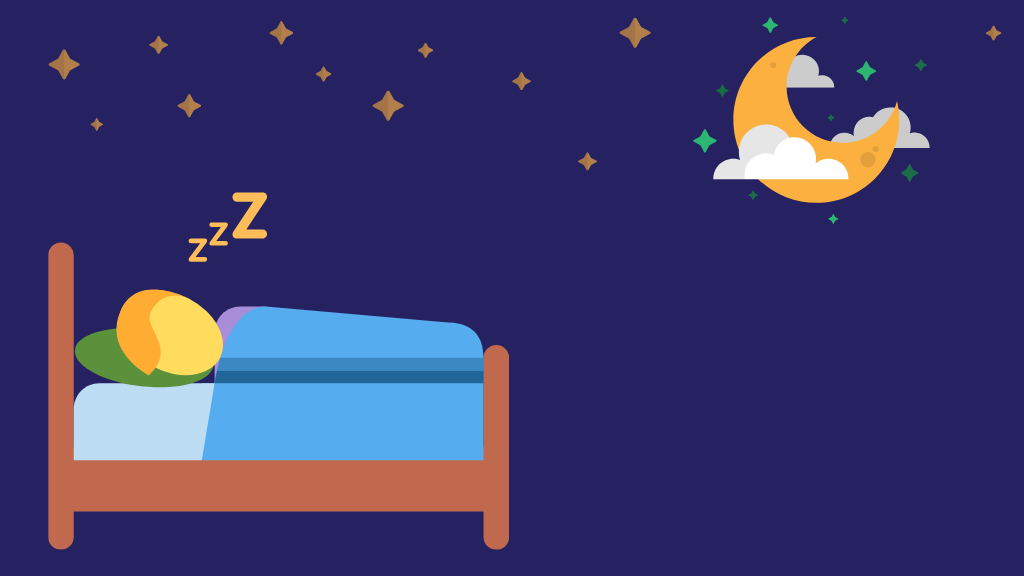Disclosure: As an Amazon Associate I earn from qualifying purchases.
If, despite all the measures taken to protect against noise, it is not possible to get a good night’s sleep due to disturbing ambient noises, then sometimes only special earplugs help you sleep .
In this article, we will look at the cases in which such hearing protection can be helpful for sleeping, what it is supposed to do and what different designs there are.
When can hearing protection help you sleep?
There are many different sources of interference that can prevent peaceful sleep.
Whether aircraft noise, street noise, knocking heaters, noisy neighbors or your snoring partner – all this and much more can steal your nerve at night and ensure that you lie awake in bed and cannot sleep.
But people who work in shifts and therefore want to sleep regularly during the day often have to struggle with these and other sources of noise. Because during the day there are of course a lot of everyday noises that can prevent a peaceful sleep.
In all of these situations, sleeping earplugs can be helpful.
OFFER
- The new SleepSoft earplug is now available: Put it down!
That is what earplugs should do for sleeping
There are a number of properties that such earplugs should ideally have. We’ll take a closer look at these below:
Suppress annoying noises
Anyone who buys hearing protection for sleeping naturally wants to ensure that disturbing noises are suppressed as much as possible. Such hearing protection should ensure a carefree and peaceful sleep.
Such disturbing noises can be of different nature and occur in different frequency ranges. Often, for example, the partner’s snoring can disturb your own night’s rest.
Snoring is often quite low in frequency. In addition, a snoring person can reach a very high volume.
In the Wikipedia article on snoring you can read that the Guinness Book of Records lists snoring as 93 decibels. This snoring would correspond to the noise level of a busy motorway.
However, it is not the aim of such earplugs to completely shield the ear from any noise. Because even if you could completely close the ear canal, you would still hear noises.
This is because sounds are also transmitted through bones. Earplugs cannot prevent this.
Rather, it is about the attenuation of noises. Loud noises should be less disturbing due to this damping.
Warning tones should remain audible
It is very important that warning tones remain audible even when wearing such ear plugs. Because despite all the soundproofing, most people want to be able to continue to hear the alarm clock in the morning, for example.
The calling or screaming of a child should of course also remain audible.
And of course it is also very important that warning tones such as a fire alarm remain audible.
So, earplugs for sleeping do quite a difficult job. On the one hand, they should be able to block out disturbing noises as well as possible, but at the same time ensure that warning tones remain audible.
If you look at this, it becomes clear that when it comes to hearing protection for sleeping, there is always a compromise, and there is no solution that works equally well for everyone.
The earplugs should be comfortable to wear
It is also important that the earplugs sit comfortably in the ear and do not just fall out at night. Because then, of course, noise insulation would no longer be possible.
Side sleepers in particular should make sure that the earplugs are still comfortable to wear when lying on their side.
In order to find the best fitting model, you may have to try out some earplugs. There are earplugs made of different materials and in different designs.
In summary, one could list the following desirable properties:
- Should offer a high level of comfort
- Should not be a nuisance when wearing at night
- Should protect against snoring
- Should suppress annoying noises
- Should ensure that warning tones remain audible
Earplugs explained in the video
In the following video we explain very clearly how our hearing works, what types of earplugs there are, what applications there are, what in-ear and what in-ear means and when to use which earplugs.
But of course there are many more different earplugs than the ones mentioned in the video.
How much noise can earplugs keep out?
Again and again you hear the question of how much noise earplugs can keep out. People also like to ask whether there might not be absolutely soundproof earplugs for complete silence.
In principle, we have already answered the second question. Since noises are transmitted through the air AND through bones (skull bones), there can be no earplugs that ensure absolute silence. Because even if the ear canal were completely closed, there would still be sound transmission via bones.
The question of how much noise earplugs can keep out is difficult to answer across the board. In this regard, you have to rely on the manufacturer’s information. However, it should be noted that – depending on the situation – it is not always about the highest possible noise attenuation.
For these * earplugs for sleeping, for example, the manufacturer states an average attenuation (SNR) of 25dB.
What material are ear plugs made of for sleeping?

Classic earplugs are mainly made from wax, silicone and foam. If you don’t know which material is better suited to your individual needs , you can buy this test box * , which contains a pair of wax, silicone and foam earplugs.
These plugs differ not only in material, but also in shape and handling.
Both wax and silicone plugs are so-called in-ear plugs, while the foam plugs are in-ear plugs that are pushed deeper into the ear.
With this test box you can find out for yourself quickly and cheaply which plugs do their job best. Because trying is known to be about studying.
Which are the best earplugs for sleeping?
The best earplugs for sleeping are the ones that are best for you individually. And that can actually be very different. So it’s a good idea to simply test a few different models.
Earplugs for sleeping – advantages and disadvantages
- Can dampen snoring noises
- Can dampen ambient noise
- May contribute to better sleep in noisy environments
- Can be uncomfortable and annoying to the ear
- Can cause irritation and inflammation of the ear canal
Risks of constant use of earplugs to sleep
If you find out about wearing earplugs, you will read again and again that wearing them constantly could lead to ear canal inflammation.
The multiplication of pathogens in the ear can also be promoted. It could also cause irritation of the ear canal.
You should therefore follow the manufacturer’s specifications and also clean and replace the earplugs regularly. Appropriate and recommended hygiene of the ear canal should also be observed.
If you are unsure about this or have any questions, you should simply contact your ENT doctor.
Where can you buy earplugs for sleeping?
Earplugs for sleeping can be found, for example, in pharmacies, drugstores, department stores, hearing aid specialist stores and of course online.
What do earplugs cost for sleeping?
There are earplugs in very different price ranges. Particularly inexpensive copies are already available for well under one euro. But classics like these wax earplugs * in a pack of 20 are also attractively priced.
Custom-made earplugs, which are only available from specialist retailers, are of course particularly expensive. Hundreds of euros can be due here.
Further measures for a peaceful sleep
It would be best, of course, not to need earplugs to sleep. That is why as many disruptive factors as possible should be eliminated in the bedroom.
You can find many good tips for effective sound insulation in the bedroom in our article Sleep better with sound insulation for the bedroom .
There is no general recommendation for earplugs for sleeping. Rather, everyone should try out for themselves which fit and material he or she can handle best.
Earplug test
What about an earplug test? Is there such a thing and, if so, what results were obtained there?
In fact, there is an earplug test by Stiftung Warentest from 2006, in which many models received the test rating “Good”. You can find this test here .
Own experience with earplugs for sleeping

I myself lived in a very noisy apartment in an apartment building for many years. The bedroom faced the back, so street noise wasn’t the problem, but the neighbors were simply always very noisy.
The constellation was extremely unfavorable. Because both the tenants right next to me, the tenants directly below me, and the tenants in the neighboring house, whose wall was directly adjacent to my bedroom, were unfortunately often heard and sometimes even liked to be active at night.
On top of that, this house was extremely noisy. Even normal noises from the bathroom carried over into my bedroom. I heard every toilet flush, the ventilation from the bathroom and the noise of the washing machine of the neighbor above, who liked to do her laundry even after midnight.
Against the noise of the direct neighbor, a sound insulation of the wall to the neighbor might have helped. If street noise had been the problem, I would have tried a soundproof curtain first.
And if the noise had come from the stairwell, I could have insulated my front door from the noise .
But in this particular case, all of these measures wouldn’t have helped much, as the noise was simply coming from too many different directions. That’s why I used earplugs to sleep. Sometimes there is obviously no other way.
Acclimatization phase with earplugs for sleeping

Since I had never worn earplugs before, I had to get used to them first. In the beginning I felt a bit isolated with these plugs and felt too shielded. And somehow I was worried that I would no longer hear my alarm clock reliably. However, this concern turned out to be unfounded.
After a few days I got used to wearing them and naturally put the wax earplugs ( this one * ) in my ear every evening in bed.
In fact, they worked pretty well for me. The annoying noises had not completely disappeared, but were no longer perceived as quite as annoying by me. This made me fall asleep faster.
It was particularly positive that I no longer woke up so often in the middle of the night when one of the neighbors came home and then spent some time making noises in his apartment.
As a result, I woke up regularly without ear plugs and then had great problems falling asleep again.
Overall, my experiences with earplugs for sleeping are positive. And even today I still have some earplugs at home so I can use them whenever I need to.
Conclusion on earplugs for sleeping
A good night’s sleep is important. If we cannot sleep soundly, we often feel tired and exhausted during the day.
For many people, the basic requirement for restful sleep is first and foremost a quiet bedroom. Unfortunately, despite all noise protection measures, a quiet bedroom is not always that easy to implement.
Clairaudient houses, noisy neighbors, street noise or even the snoring of our partner can keep us from a peaceful sleep.
In these cases, suitable earplugs for sleeping can actually be very helpful.
Since many models are very cheap to buy, it is worth simply trying out such earplugs.
Disclosure: Amazon and the Amazon logo are trademarks of Amazon.com, Inc, or its affiliates.

